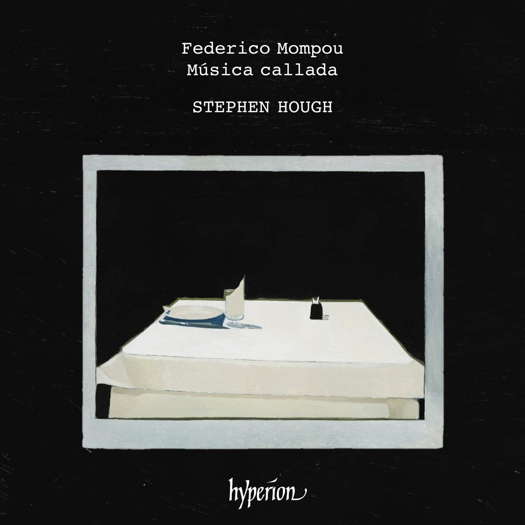 FEEDBACK: She said WHAT? Read what people think about our Classical Music Daily features, and have your say!
FEEDBACK: She said WHAT? Read what people think about our Classical Music Daily features, and have your say!

Highly Rewarding
GERALD FENECH is impressed by Stephen Hough's interpretations of piano music by Catalan composer Federico Mompou
'... Stephen Hough's marvellous passion for this music is displayed in his unique ability to bring out all the subtleties of these incomparable scores.'
Federico Mompou (1893-1987) was one of the greatest Spanish composers of the twentieth century. A Catalan by birth, he studied and appeared on stage in Barcelona since young. Later he studied piano at the Paris Conservatoire under Isidor Philipp, a distinguished pianist and schoolmate of Debussy. On one occasion, Mompou heard Gabriel Fauré perform his Quintet and was inspired to become a composer. Added to this, his shy and reticent nature discouraged him from a career as a concert pianist, and he dedicated his vocation to composition. Except for a brief return to Barcelona during World War I, Mompou stayed in Paris for over twenty years, and it was there that he gained his fame as one of the leading composers of his day.
In 1941, to escape the Germans in Paris, Mompou returned to Barcelona where he married the Catalan pianist Carmen Bravo in 1957. The composer passed away in 1987, but his wife outlived him by another twenty years, and after her demise she left behind a library of scores, books and recordings in the same apartment on Passeig de Gracia, where the couple lived. The place was later to become the Federico Mompou Foundation.
Mompou's early compositions date from during his studies in Paris. Like Chopin, he composed mainly for the piano, but unlike the Polish master, he hardly wrote any large scale works. Greatly influenced by Satie and Debussy, Mompou's music contains an abundance of musical idioms of his beloved Catalunya. This juxtaposition of musical styles, at times intimate and minimalistic, or poetic and impressionistic, created a profound musical identity which pervades throughout his entire output. Mompou's music is unique and unmistakeable, economic yet exuding a rare sophistication and elegance with deep emotions of folk music.
Mompou composed four volumes of brief, aphoristic piano pieces called Música callada or Music of Silence, between 1959 and 1967. He seemed, when writing these pieces, to enter into a world of spiritual uplifting, indifferent to the many conventions of Western music, particularly twentieth century German music, which he found too thickly orchestrated and heavy, laden with dramatic intensity. These twenty-eight miniatures are a prime example of Mompou's simplicity and clarity of expression, and although his language is somewhat similar to Satie's, it still stands out for its immense originality and profound soul searching qualities.
Listen — Mompou: Lento (Música callada, Book 1)
(CDA68362 track 7, 0:00-0:53) ℗ 2023 Hyperion Records Ltd :
No notes are wasted, and the music is almost all very sedate and has a rhythmic flow that often allows its poetic aspect to flourish. For repertoire like this, a pianist has to have an absolutely mellifluous touch, and Stephen Hough's marvellous passion for this music is displayed in his unique ability to bring out all the subtleties of these incomparable scores.
Listen — Mompou: Calme (Música callada, Book 2)
(CDA68362 track 16, 0:00-0:42) ℗ 2023 Hyperion Records Ltd :
Indeed, this is what Hough had to say on Mompou's creations: 'This composer's art is the music of evaporation'. Experiencing the complete cycle is to immerse your whole being in an inner world that manages to maintain its hold on the listener's attention for the whole of the performance.
Listen — Mompou: Lento (Música callada, Book 4)
(CDA68362 track 28, 2:35-3:32) ℗ 2023 Hyperion Records Ltd :
Not mainstream piano music, but certainly highly rewarding nonetheless. Sound and annotations are to Hyperion Records' usual exemplary standards. Do give it a try.
Copyright © 14 April 2023
Gerald Fenech,
Gzira, Malta




